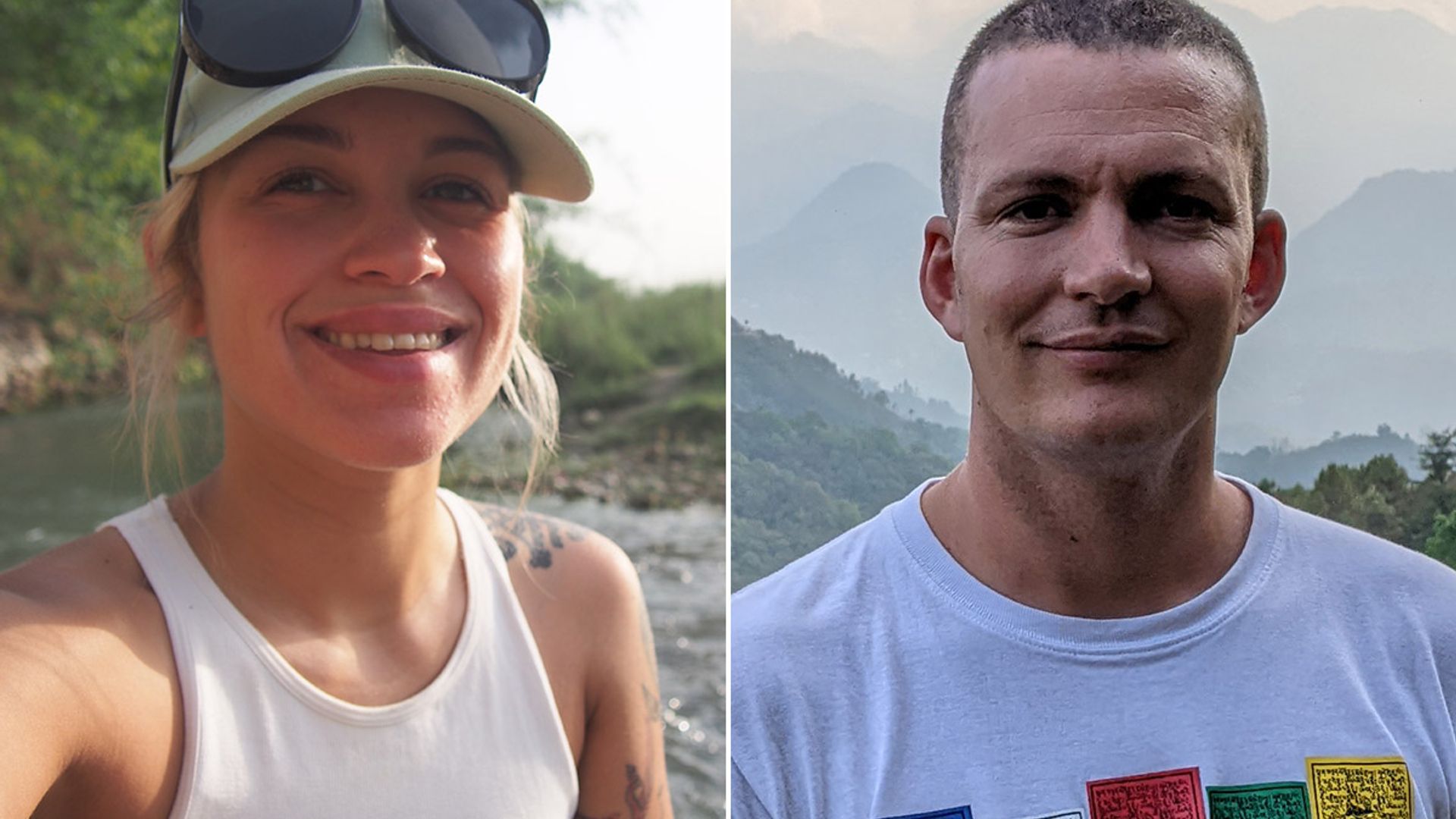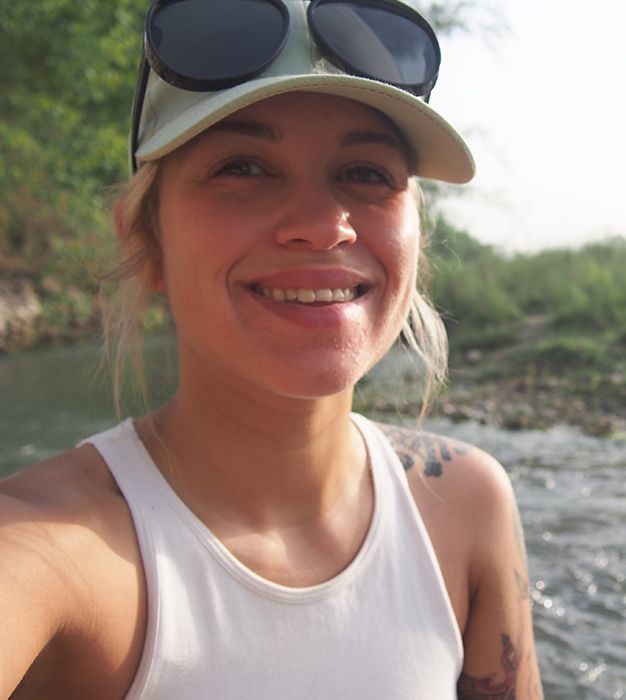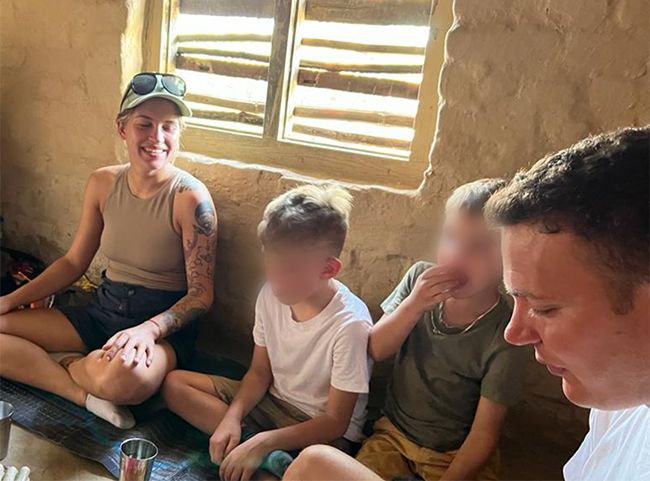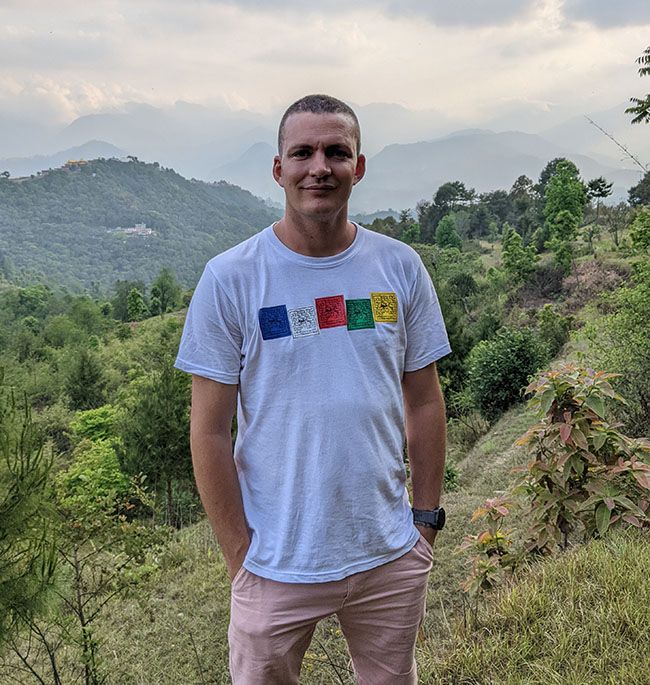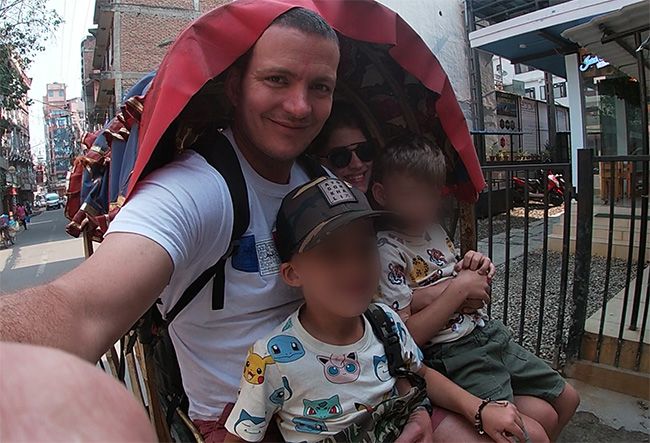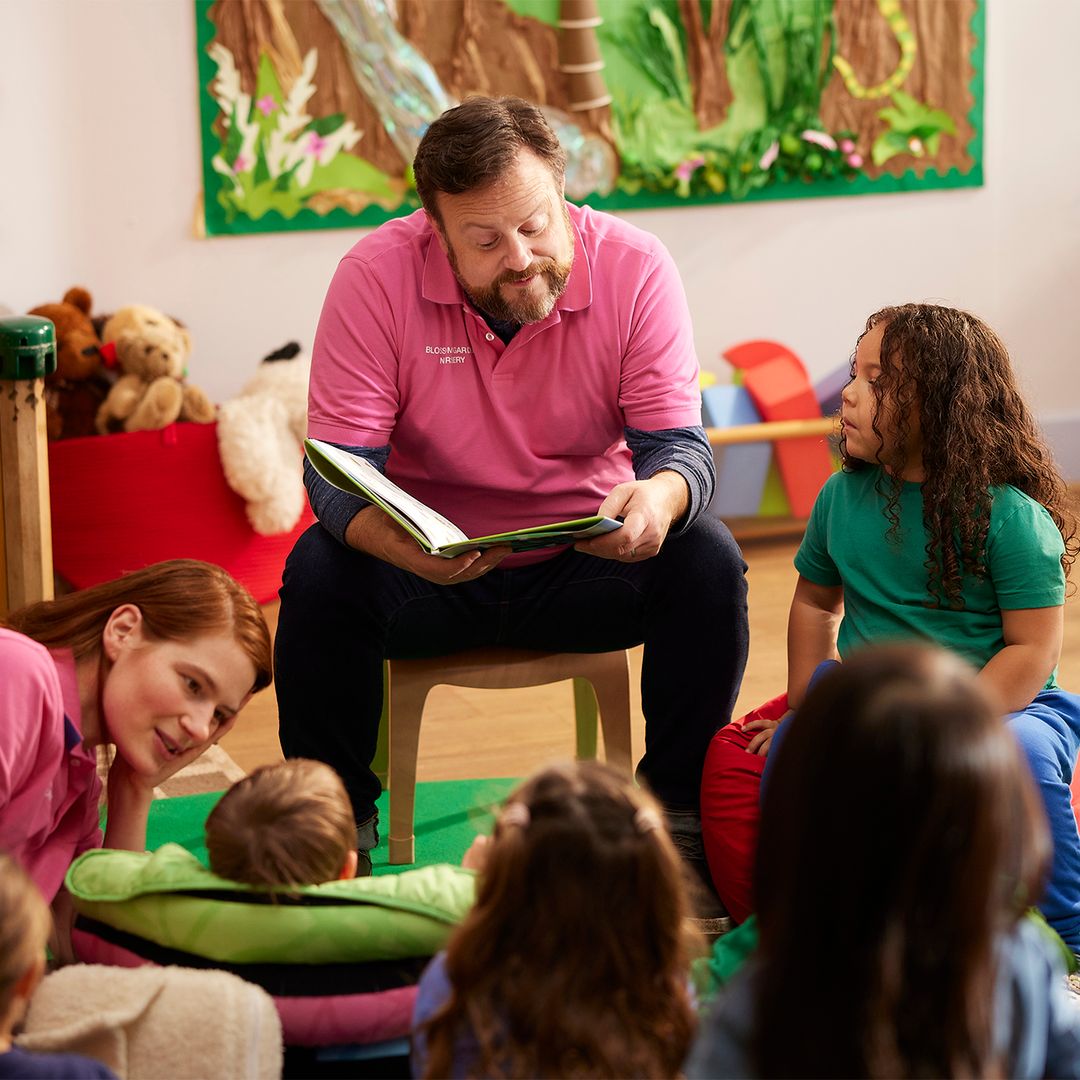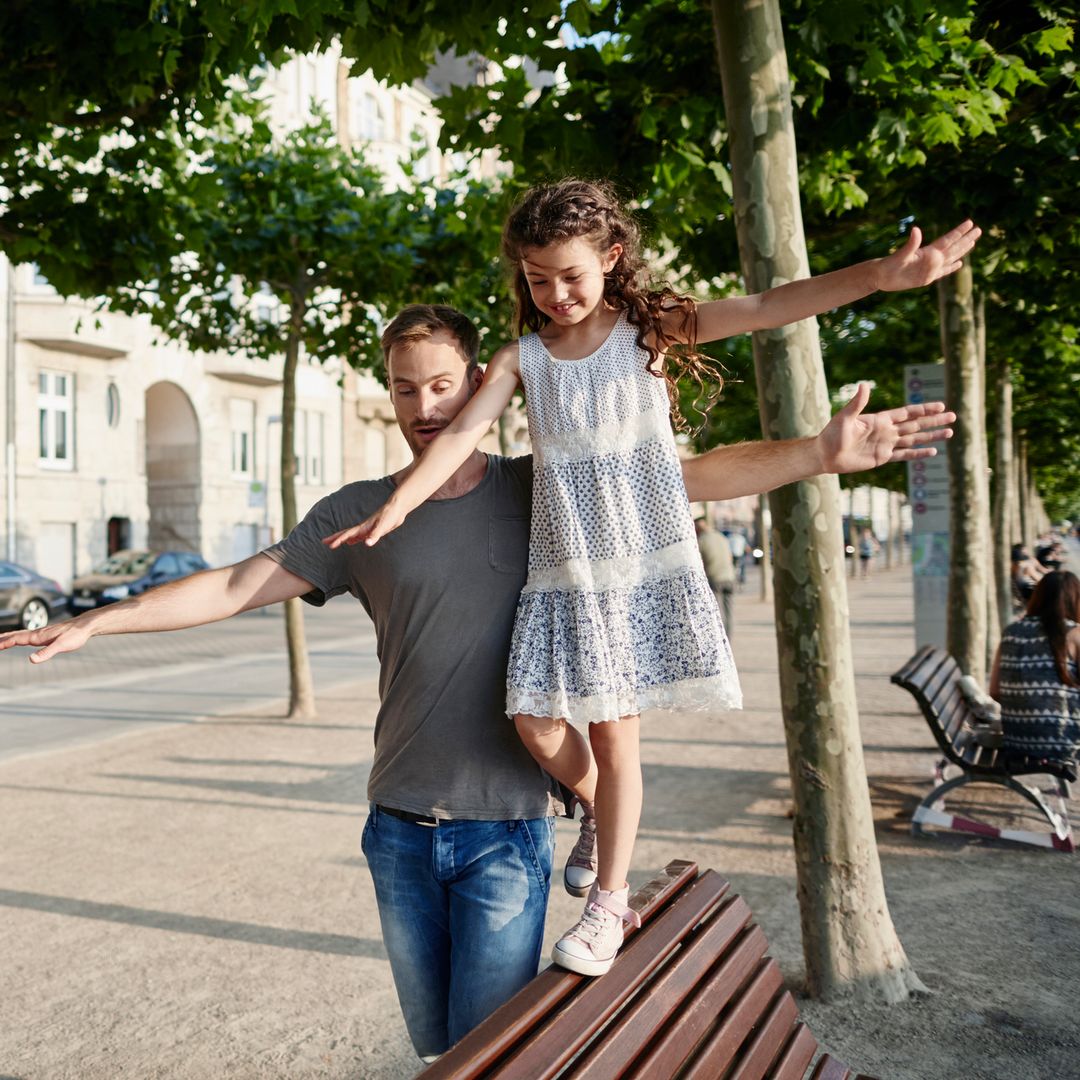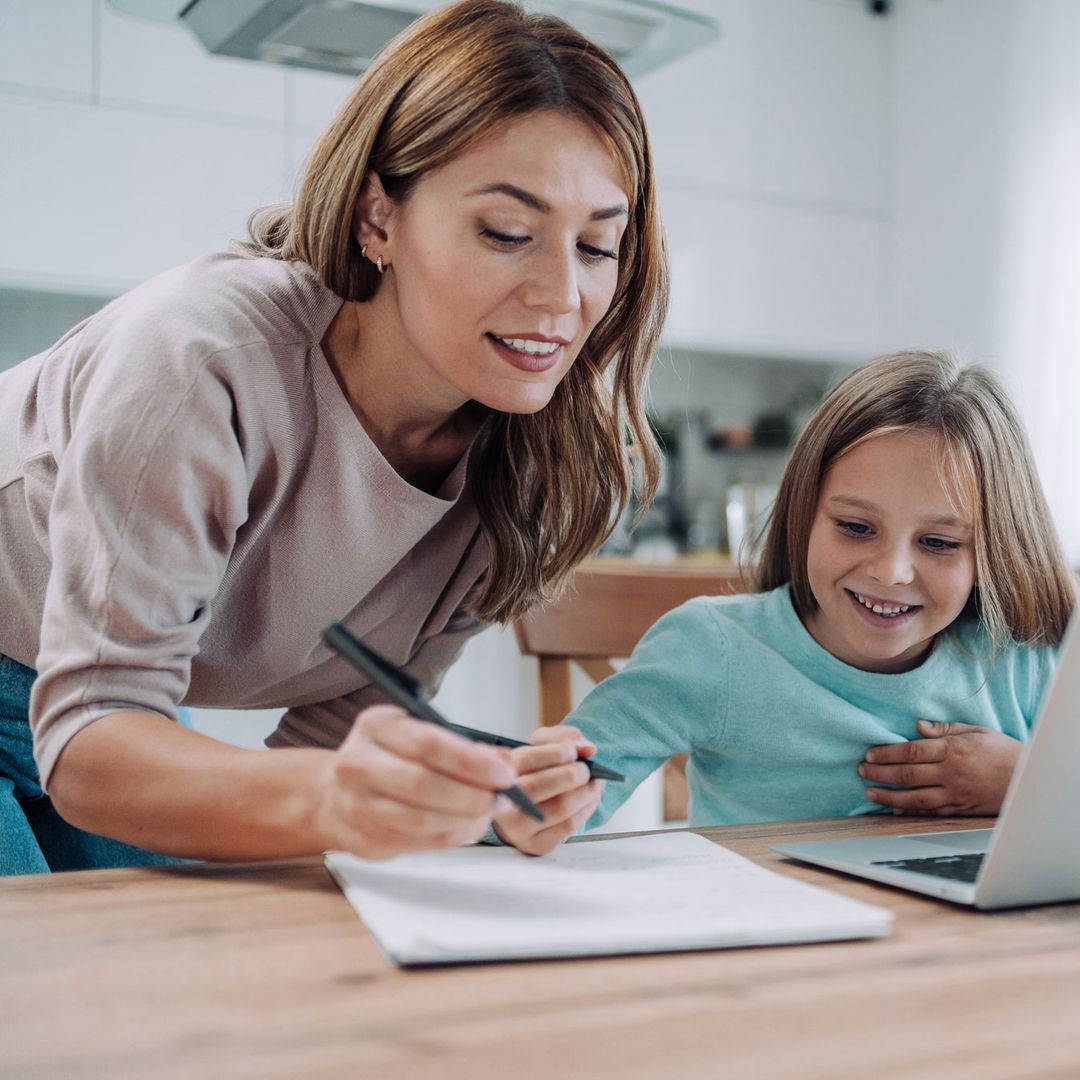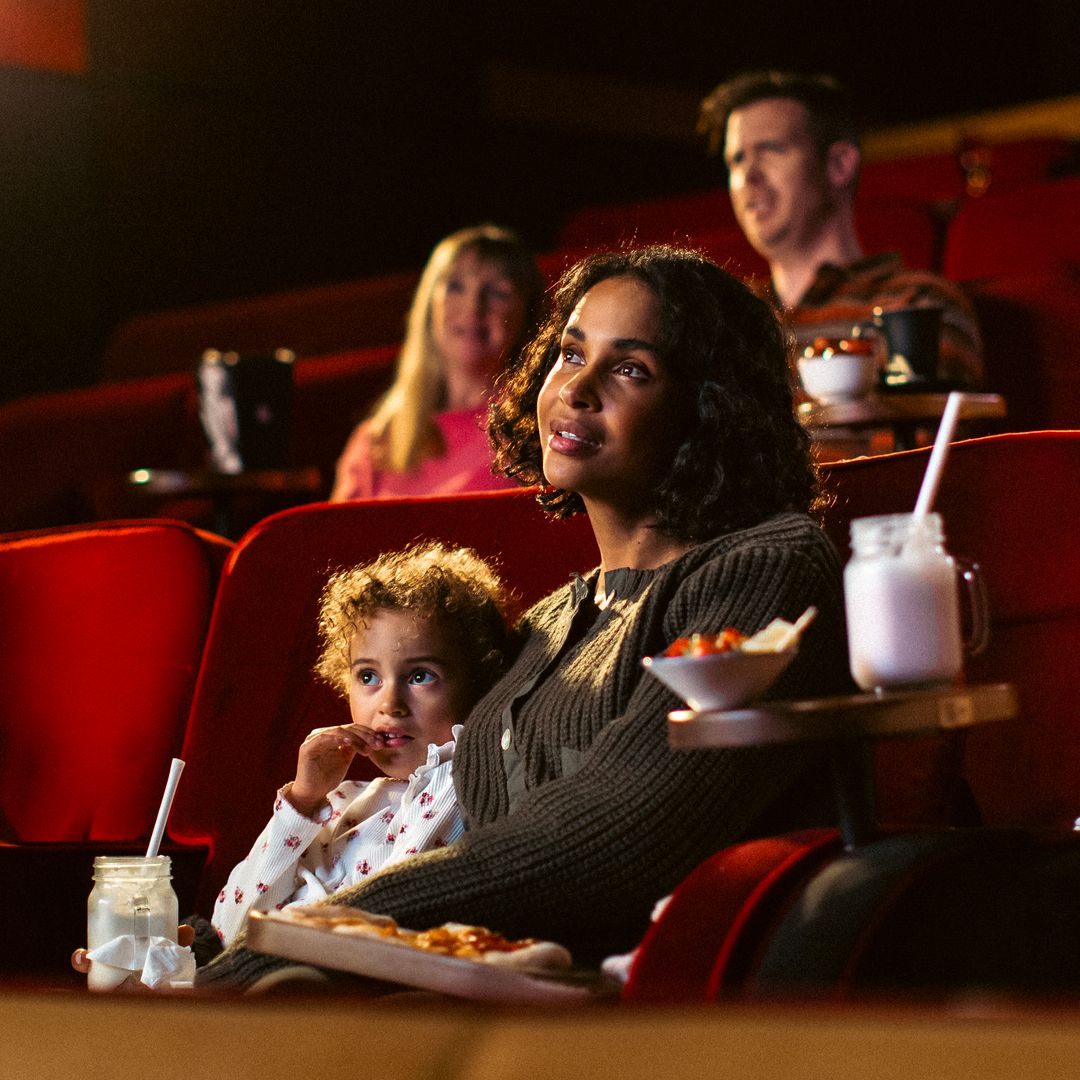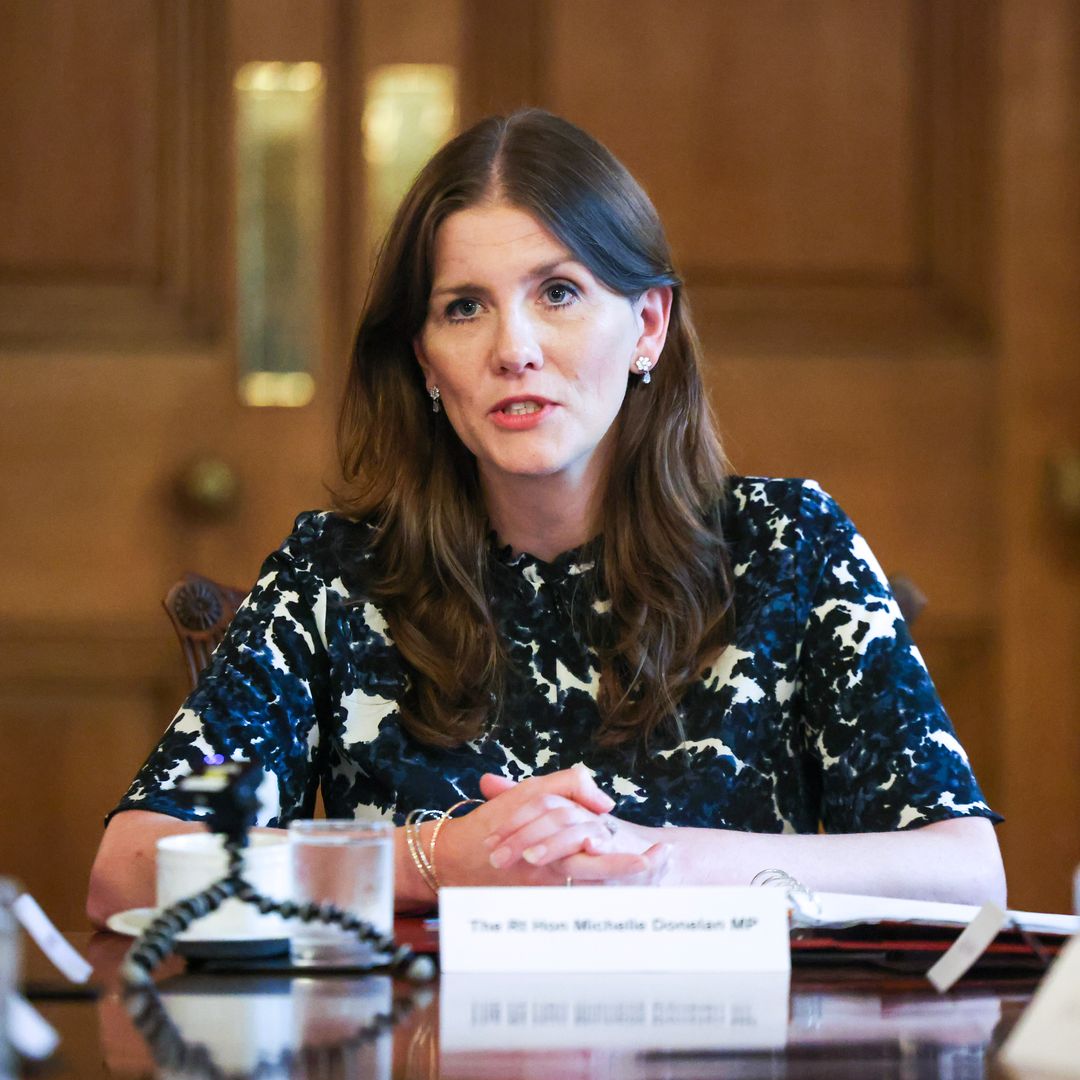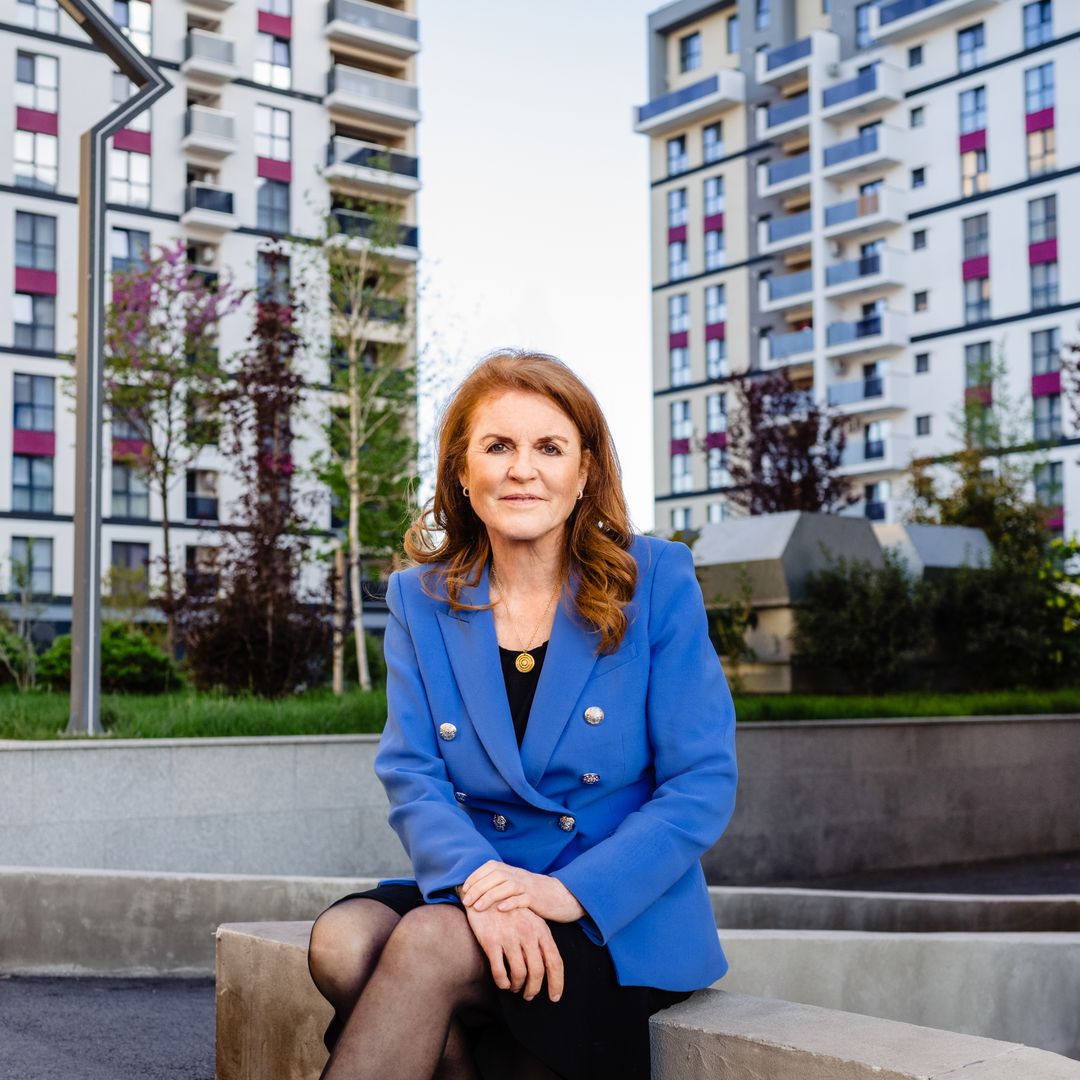Separation or divorce is a tough time for any couple and if you have children together, the split can be even more difficult.
With celebrities such as Adele bringing the subject of co-parenting into the public eye, bringing up your child or children with your ex has become the norm – and striving for an amicable co-parenting arrangement with a 'child-first' ethos is the goal for many mums and dads.
Below, former partners Victoria and Dave Hinton who separated in November 2018 and share boys Isaac, seven, and Arthur, five, chat about their co-parenting setup and how they manage to prioritise family life.
Mum-of-two Victoria
The exes recently returned from a family trip to Nepal with their two children. Motivated by her own childhood experiences, which she describes as "toxic", Victoria is determined that her children have access to both parents.
She says: "I know what kind of parent I don’t want to be to my children and have to try my best to be that."
Spurgeons Children’s Charity, co-parents and Dad.info forum participants also offer insight and advice in navigating family life after separation.
Read Victoria and Dave's story…
Can you briefly explain your co-parenting arrangement and setup currently?
Victoria: Isaac and Arthur stay with David during school days and with me from Friday to Sunday. There are some days when I’m over there during weekdays to take boys to school or pick them up – it’s always a nice surprise for boys.
How long and what did it take as co-parents to get to the point of having a successful arrangement?
Victoria: I don't think it took any time. Coming from a one-parent toxic childhood, I know how important it is for me to make sure that our kids have both of us present.
Dave: We have had broadly the same arrangements since we first separated. Since I drive and have a more flexible working arrangement, it was easier for me to have the school/nursery days during the week.
How would you define successful co-parenting?
Victoria: Children are mirrors of their parents, and if we can show them that we are still both their parents and good friends at the same time - and act in that manner - it reflects in their behaviour. So as long as the kids are happy and there is no major concern or change, I think we are successfully co-parenting. Communication and understanding are a big part.
You recently returned from a family holiday to Nepal - what was the main motivator to go together as co-parents?
Victoria: I think Dave was planning this holiday for a long time for him and boys. It was nice to go as well as I knew the boys would be over the moon having both of us there and be able to share many memories and experiences as we go. And it’s definitely easier to travel together with two children.
On holiday, when we were visiting the Jungle region, Dave's friends just couldn’t understand how we had been separated for all this time and were now on holiday together. It was mind-blowing for them and something alien. We had good two to three evenings in a row of them asking whether we are sure we are separated or asking for proof of it.
We spent three weeks in a different country in extreme heat and some days experienced pressure, but we still got along and didn’t argue about anything. Some couples cannot do that ‑ I think that indicates that we are doing just fine as co-parents and friends.
The family on holiday in Nepal
Dave: Initially I planned to go to Nepal as just me and the boys. When the trip got closer I decided to invite Victoria to join us. It was a trip we had discussed many times over the years and so I knew she would want to come. Her work had also changed recently, which I thought would give her the flexibility to take such a long break – three weeks!
I knew that the boys would love the share the experience with both me and Victoria. It would also make the trip a lot easier for all of us by having Victoria with us. I also love to share Nepal with people and Victoria is a good friend, so I was pleased to be able to share the experience with her.
How did your children benefit from having both parents with them on holiday?
Victoria: They benefited by getting enough attention each, to be able to do different things with each of us, or all of us together, or even by themselves ‑ and then coming and telling both of us what they been up to.
They most definitely felt safer with the presence of both of us, and had the option to choose between us both, either they wanted a cuddle or try to ask for a chocolate sweet for the second time because one of the parents said no. I don't think it would've been much of a holiday for Dave if he was on his own with both kids.
Dave: The boys absolutely 100% benefitted from having both of us with them on the trip. They were able to get maximum engagement from us, which would have been stretched if I was alone. They were able to have one-to-one time with each of us. I imagine they also have a greater sense of confidence and security going into new situations and environments with both of us present.
Dad Dave shares Isaac and Arthur with ex Victoria
Why is it so important for children to have access to both parents?
Victoria: I think it's important for children's emotional and mental development to have access to both parents, as each of us as individuals nourishes them in different ways. They bring out different emotions and experiences with both of the parents, there is never the same day. Which is a good learning curve for both parents and children, as there is no day going past without learning something new about your child or yourself. Life is a journey full of discoveries.
Dave: I think it’s important for the boys to have a good relationship with both of us because we both provide them our own guidance and love. Through both of us, they benefit from a balance of role models each imparting our own values and perspectives, I think this helps develop a greater breadth of character.
I think it is important for children growing up to know that both parents are there for them and they can depend on them and they are loved. If it wasn't so, I imagine it is hard to understand as a kid, and as you grow up, why a parent wasn’t there for you.
Our culture typically expects children to have two parents. If they don’t have both parents in their lives naturally, I think children will question why and could feel unwanted. I think this can lead to deep-rooted emotional trauma in many instances.
Also, I think as their parents we are both part of who they are. As they grow up, I think it is good for them to have the connection to their heritage - we made them. Whilst they will go their own ways and become their own people, they will know and understand where they came from.
Can you describe your experiences of remaining 'child-first' as you co-parent?
Victoria: Coming from a toxic parenting childhood, I feel like I have most of the tools to ensure our children don’t experience any of it. Without going into too much detail, I know what kind of parent I don't want to be to my children, and have to try my best to be that. It’s so much easier to be that parent when both of the parents are on the same page of still raising children together while being apart.
Dave: I have to consciously remind myself that the boys come first, and it is not about trying to be the best parent but instead offering the boys the best parenting – which comes from both of us.
It is tempting at times to want to be the favourite parent, but I think this can quickly escalate into an unhealthy projection which naturally the children will pick up on.
We have a shared mission; to raise the children as happy and healthy humans. This mission is implied and not something we necessarily needed to discuss or agree on. As we share this common goal we are both on the same team. In that sense a win for me is also a win for Victoria, a loss for me is also a loss for Victoria and of course vice versa.
On holiday as a family of four
Can you explain what influenced you both to co-parent and motivated you to achieve the current arrangement?
Victoria: We chose to have children, so with that comes the responsibility to ensure they get all they need for their development into beautiful, smart, nourished, healthy human beings.
We can’t do everything right, there will be mistakes. But we have a clear vision of doing the best we can with parenting and making sure everyone involved benefits from our decisions one way or another.
Dave: I don’t think co-parenting was a choice. It is a duty. The current arrangement works well. The boys get a good time with both of us and often times together as a family.
Victoria and I also get a fair amount of time for ourselves – I think this is perhaps one of the greatest aspects of co-parenting – you get a break without feeling guilty for not being there.
What has been the biggest challenge to overcome as co-parents?
Victoria: I don’t think there have been any big challenges to overcome. Perhaps when Dave got the kids introduced into his new relationship, it was a bit worrying to me. But then again, I observed the kids' behaviour over time and nothing majorly had changed and they were their little happy selves, so I dropped my guard because I knew that it’s still that safe environment and Dave is making sure the boys are still a priority.
Dave: I honestly cannot think of any big challenges. Maybe Victoria would disagree!
I think there is an expectation in society that we should not get on with 'the ex'. People are often surprised and comment that we do stuff together. Friends saw my holiday photos and asked if we were back together! This is how they interpret good co-parenting.
I have had relationships since Victoria and I separated and it requires a level of understanding from the new partner about how this works. At times I have spent less time together with Victoria and the boys as a family, as new partners can be uncomfortable with it. This can be hard because I feel the boys miss out due to that separation. If there is a part of co-parenting that I haven’t got quite right yet, I would say it is in new relationships.
How important would you say communication is in a successful co-parenting relationship?
Victoria: Communication is the key, not just so we can keep tabs on each other, but for the children's wellbeing. We often send each other photos of what the kids have been up to. They sometimes like to call me when they are with Dave and tell me something they been up to, or something they saw and want to share.
It's important that there are no restrictions and both of us are available to them day and night if needed. It's also nice that Dave and I can sit down and have a chat. We are ever-growing and evolving as people and it’s nice to share different conversations and see how both of us have changed over the years, as parents and our own beings.
Dave: We chat regularly on WhatsApp. Checking plans and making arrangements. Sharing what we have been up to with the boys and how they are getting on. We can go weeks or months without spending much time together and then we can spend two or three weekends in a row together.
When we are together, we talk about the kids but we are also good friends, so we talk about all kinds of stuff too. The kids go to bed and we’ll watch a movie or play cards or something and chat. It’s a bit cliché but communication is key.
What is your children’s level of understanding of the situation?
Victoria: As they were younger it was explained as simply as their little minds could understand. I think the way we chose and continue to parent our children after separating is why they have taken it so well and really don’t see it as a major life-changing event.
Dave: They were both very young when we separated and so I don’t think they understood too well at the time. We explained that we were both going to be friends still and we are both still their parents, but that we would be happier if we didn’t live together anymore. I don’t think they understood much more than the result of that at the time. I think they understand the situation now.
How do you navigate special dates such as Mother’s/Father’s Day, or holiday periods like birthdays and Christmas?
Victoria: There is a certain day in December when my aunt has everyone around for Christmas, and Dave has always been welcomed there. We make sure we both attend school or out-of-school plays.
We have made sure that the boys spend enough time with both of us and have family around during holiday seasons. I think last year, the boys and I agreed on a tradition for a gift for Father’s Day - so not to ruin the surprise, but I think Dave will know what he’s getting this year.
Dave: I’m not really into all these commercialised days. Yes, I’m a Grinch when it comes to Christmas, birthdays etc. Although I have found a new enjoyment of them since having children, enjoying it through their experience.
It’s also nice to come together with wider family for special dates. At Christmas, Victoria and I usually spend some time so all of us can be together.
Five tips for successful co-parenting
How to remain child-first during and after separation - helpful tips from Spurgeons in collaboration with co-parents and Dad.info forum participants
Don’t weaponise the children
When navigating a separation, remember to keep the needs of your child/children at the centre of decision-making. Richard, a dad and co-parent of two sons within a 60:40 arrangement with his ex-partner says: "Recognise the difference between your needs and your children’s needs, then step back and be the adult in the situation."
Don’t badmouth your ex in front of the kids
The adult aspect of the family relationship breaking down doesn’t mean that the children have stopped loving their respective parents. Clarinet*, Parent Support Volunteer for Dad.info, explains: "Saying hurtful things about the ex-partner can be very upsetting for children/teenagers to hear. It can bring all kinds of negative emotions to the surface such as anger, frustration, feeling hopeless."
Allow your child access to both parents
Meeting in a neutral place can help ease the tension when agreeing on access and contact. Make plans to review after a couple of months or until things settle down into a regular pattern. Dave Hinton, the co-parent with Victoria, elaborates: "It’s important for children growing up to know that both parents are there for them, that they can depend on them and to know they are loved. They benefit from having both parents as role models who each impart their own values and perspectives."
Respect your ex’s role as parent
Remember the word compromise in all that you discuss where the children are concerned. Richard adds: "In co-parenting relationships, there is a place for empathy. Be open about what you are doing and why. Sharing what has worked for you and being open to hearing the reverse."
Keep communicating
Clarinet says: "Keep communicating with your child/teen. If your children are older, don't be afraid to give them an honest answer if they ask you a question about the separation. For younger children, keep it simple but always be as truthful as is appropriate to do so."
CEO of Spurgeons Children’s Charity, Ian Soars concludes: "Imagine a world where people going through a separation knew how to divorce better, were equipped to put their children first and successfully managed a cooperative parenting relationship. That’s an ideal that we want to help parents and children move closer to because ultimately, all the research shows this is what’s best for the children involved."
Parents seeking peer support, resources and advice on separation and divorce can go to DAD.info
Like this story? Sign up to the HELLO! Family Hub newsletter to get other stories like this delivered straight to your inbox.
